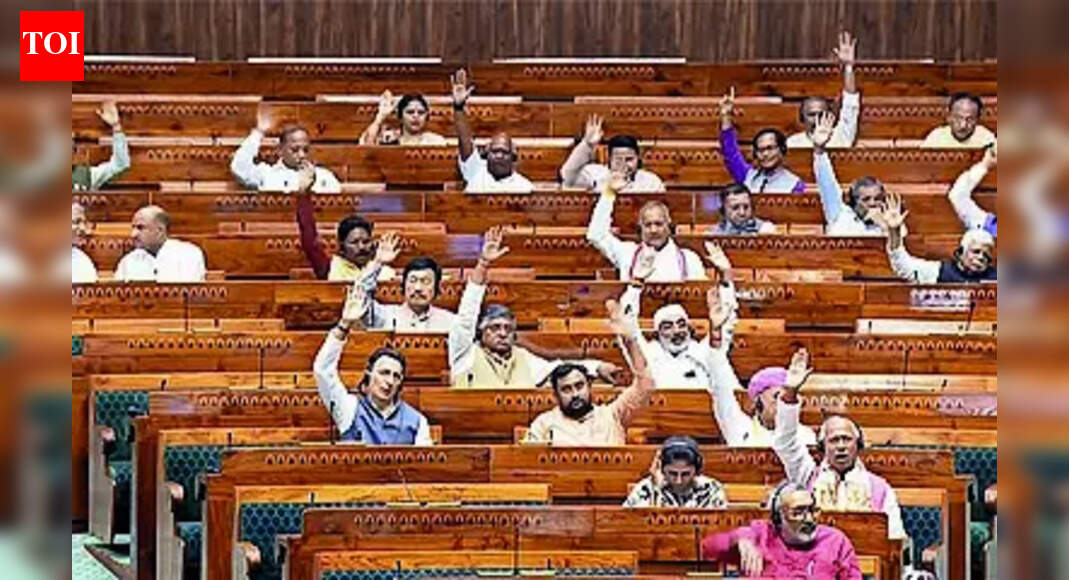
A bill to establish a single higher education regulator, aimed at replacing existing bodies such as the University Grants Commission (UGC), is scheduled for introduction in the winter session of Parliament, set to commence on December 1, as reported by PTI. According to a Lok Sabha bulletin, the proposed legislation has been named the Higher Education Commission of India (HECI) Bill. The move aligns with the vision outlined in the National Education Policy (NEP) 2020, which calls for a unified regulatory framework to ensure greater efficiency and accountability in higher education.The HECI is proposed to consolidate the roles of the UGC, the All India Council for Technical Education (AICTE), and the National Council for Teacher Education (NCTE). While the UGC oversees non-technical universities, the AICTE governs technical institutions, and the NCTE sets standards for teacher education, HECI will focus on three core functions: Regulation, accreditation, and setting professional standards.Medical and law colleges will remain outside its jurisdiction, and funding, the fourth major vertical in higher education governance, will continue to be managed independently by the administrative ministry. The concept has been under discussion for several years, with a draft HECI Bill circulated in 2018, and renewed efforts gaining momentum under Education Minister Dharmendra Pradhan since 2021.
Current regulatory framework
At present, India’s higher education system operates under a fragmented regulatory structure:
- UGC oversees non-technical universities.
- AICTE supervises technical institutions such as engineering and management colleges.
- NCTE sets standards for teacher education programs.
The proposed HECI will consolidate these functions, focusing on three primary roles: Regulation, accreditation, and professional standard setting. Medical and law colleges will remain outside its scope, while funding will continue to be managed by the administrative ministry, keeping financial autonomy separate from regulatory oversight.
Historical context and policy rationale
The concept of a unified higher education regulator is not new. A draft Higher Education Commission of India Bill was released in 2018 to repeal the UGC Act and introduce HECI. That effort, however, stalled after public consultations and stakeholder feedback.Renewed momentum came under Education Minister Dharmendra Pradhan, who has actively pursued the legislation since 2021. The National Education Policy (NEP) 2020 underlines the need for reform, noting that “the regulatory system is in need of a complete overhaul in order to re-energise the higher education sector and enable it to thrive.” The NEP recommends a clear separation of functions, with independent bodies handling regulation, accreditation, funding, and academic standard setting.Key Features of the HECI
- Unified Regulation: HECI will serve as the central authority for both technical and non-technical higher education institutions, streamlining approval processes.
- Accreditation Oversight: Ensuring that universities and colleges meet national academic standards.
- Professional Standards: Setting benchmarks for teaching, curriculum design, and research quality.
- Exclusions: Medical and law colleges will remain outside HECI’s jurisdiction.
- Funding Autonomy: Financial management will stay with the administrative ministry, separating regulatory oversight from funding decisions.
Potential Impact on Higher Education
The introduction of HECI could significantly influence India’s higher education ecosystem:
- Simplified Governance: Institutions may experience faster approvals and reduced bureaucratic hurdles.
- Enhanced Quality and Credibility: Uniform standards and professional benchmarks could strengthen the global recognition of Indian degrees.
- Academic Autonomy: Clear separation of regulation and funding may allow universities to pursue research, collaborations, and innovation more freely.
- Policy Clarity: A single regulator could provide coherent guidelines, reducing conflicts between overlapping authorities.
However, experts caution that the transition may be challenging for universities accustomed to existing frameworks. Ensuring that institutional autonomy is preserved while enforcing stricter quality standards will require careful implementation.







